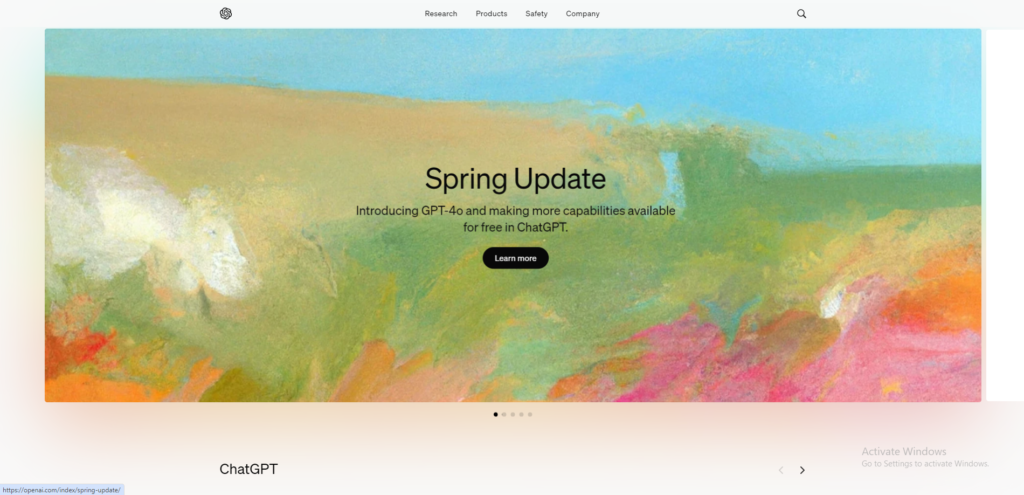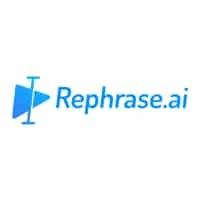OpenAI is an organization focused on advancing artificial intelligence (AI) in a manner that benefits humanity. It conducts research and develops AI technologies, with a particular emphasis on safety and ethical considerations. Established in 2015, OpenAI aims to create artificial general intelligence (AGI), which is AI capable of performing any intellectual task that a human can do. The organization’s work spans various domains, including natural language processing, robotics, reinforcement learning, and more.
How to use Open AI?
Using OpenAI typically involves accessing their services or platforms through APIs or specialized tools. Here’s a general overview of how you might use OpenAI:
- Accessing APIs: OpenAI provides APIs (Application Programming Interfaces) that allow developers to integrate AI capabilities into their applications. You can sign up for an API key, which you then use to make requests to OpenAI’s servers.
- Choosing a Model: OpenAI offers various AI models tailored for different tasks, such as text generation, language translation, image recognition, etc. Depending on your needs, you select the appropriate model for your project.
- Making Requests: Once you have an API key and chosen a model, you can start making requests to the OpenAI API. These requests typically involve sending input data to the API (e.g., text, images) and receiving AI-generated output in response.
- Integration: Integrate the AI-generated output into your application or workflow as needed. This could involve displaying text, processing images, or incorporating AI-generated recommendations.
- Monitoring and Optimization: Monitor the performance of the AI model in your application and make adjustments as necessary. You may need to fine-tune parameters, handle edge cases, or optimize for specific use cases.
- Compliance and Ethical Considerations: Ensure that your use of OpenAI complies with their usage policies and ethical guidelines. Consider the potential societal impacts of AI technologies and take steps to mitigate risks.
Overall, using OpenAI involves leveraging their AI capabilities to enhance your applications or workflows, while also being mindful of ethical considerations and best practices in AI development and deployment.
Core Features of Open AI:
- Cutting-Edge Research: OpenAI conducts pioneering research in artificial intelligence, pushing the boundaries of what AI can achieve.
- Advanced Models: OpenAI develops state-of-the-art AI models that excel in various tasks, such as natural language processing, image recognition, and reinforcement learning.
- API Access: OpenAI offers APIs that allow developers to access and integrate their AI capabilities into their applications easily.
- Diverse Applications: OpenAI’s technology finds applications across industries, including healthcare, finance, gaming, and more, enabling innovation and efficiency improvements.
- Safety and Ethical Focus: OpenAI prioritizes safety and ethical considerations in AI development, working to ensure that AI technologies benefit society while minimizing risks.
- Community Engagement: OpenAI fosters collaboration and knowledge-sharing within the AI community, contributing to the advancement of AI research and development globally.
- Education and Outreach: OpenAI provides resources, tutorials, and educational materials to support developers and researchers in learning and applying AI technologies effectively.
- Continuous Improvement: OpenAI continuously updates and improves its models and technologies based on feedback, new research findings, and advancements in the field of artificial intelligence.
Use Cases of Open AI:
- Natural Language Processing (NLP): OpenAI’s language models can be used for tasks such as text generation, summarization, translation, sentiment analysis, and question answering.
- Content Creation: Writers, marketers, and content creators can use OpenAI’s text generation models to automate content creation for blogs, social media posts, product descriptions, and more.
- Customer Support: Companies can leverage OpenAI’s AI models to automate customer support processes, such as chatbots for handling inquiries, resolving issues, and providing assistance.
- Personalization: OpenAI’s AI technologies can personalize user experiences by analyzing user behavior and preferences to recommend products, content, or services tailored to individual users.
- Healthcare: OpenAI’s models can assist healthcare professionals in tasks such as medical image analysis, diagnosis, drug discovery, and patient monitoring, leading to more accurate diagnoses and improved patient outcomes.
- Finance: Financial institutions can use OpenAI’s AI technologies for tasks such as fraud detection, risk assessment, portfolio management, algorithmic trading, and customer service automation.
- Gaming: OpenAI’s reinforcement learning algorithms can be applied to train AI agents for playing games, leading to advancements in game AI and autonomous gameplay.
- Education: OpenAI’s educational resources and AI technologies can support learning and teaching activities, such as personalized tutoring, automated grading, and content recommendation systems.
- Research: Scientists and researchers can use OpenAI’s models and tools to analyze large datasets, conduct experiments, and make discoveries across various fields, including biology, physics, and climate science.
- Creative Arts: Artists and designers can use OpenAI’s AI technologies for tasks such as generating art, music, and design elements, exploring new creative possibilities and enhancing their artistic workflows.
Summery:
OpenAI is an organization dedicated to advancing artificial intelligence (AI) in a manner that benefits humanity. Founded in 2015, OpenAI conducts cutting-edge research and develops state-of-the-art AI models and technologies. Their core features include advanced models, API access, safety and ethical focus, community engagement, and continuous improvement. OpenAI’s technology finds diverse applications across industries, including natural language processing, content creation, customer support, healthcare, finance, gaming, education, and research. By prioritizing safety, ethics, and collaboration, OpenAI aims to push the boundaries of AI while ensuring its responsible and beneficial use for society.










